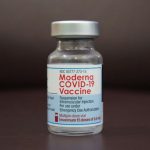When you think about wool, have you considered where it comes from and how it’s produced? The Responsible Wool Standard (RWS) aims to guarantee that wool is sourced ethically, focusing on animal welfare and sustainable practices. Understanding what RWS entails can change how you view textile production and its impact on the environment. But, what exactly does this certification mean for consumers and the industry as a whole?
Table of Contents
Key Takeaways
- The Responsible Wool Standard (RWS) certifies wool from farms committed to animal welfare, sustainable land management, and social responsibility.
- RWS ensures humane treatment of sheep, prohibiting harmful practices such as mulesing and promoting their physical and mental well-being.
- The standard emphasizes eco-friendly practices, aiming to reduce the environmental impact of wool production and protect ecosystems.
- Compliance with RWS is verified through independent audits, assessing animal welfare, environmental practices, and social responsibility.
- Choosing RWS certified wool guarantees traceability, supporting ethical brands and contributing to a more sustainable wool industry.
Understanding the Responsible Wool Standard (RWS)
As you explore sustainable textile options, understanding the Responsible Wool Standard (RWS) becomes essential.
The RWS is a certification that guarantees wool comes from farms that prioritize animal welfare, land management, and social responsibility. It assures that sheep are treated humanely, with practices that avoid harmful practices like mulesing.
You’ll find that RWS-certified farms must adhere to strict standards, promoting sustainable grazing and biodiversity. This standard not only focuses on the sheep but also emphasizes the importance of the environment, guaranteeing that wool production doesn’t harm the ecosystem.
Key Objectives of the RWS
The Key Objectives of the Responsible Wool Standard (RWS) focus on enhancing animal welfare and reducing environmental impacts.
You’ll see how these standards aim to protect sheep while promoting sustainable practices in wool production.
Understanding these goals is essential for anyone looking to make responsible choices in their textile options.
Animal Welfare Standards
While you may be familiar with various animal welfare initiatives, the Responsible Wool Standard (RWS) sets a high bar by ensuring that sheep are treated with care and respect throughout their lives.
The RWS establishes specific criteria that address the physical and mental well-being of sheep. This includes providing adequate shelter, access to clean water, and nutritious food. Additionally, the RWS prohibits practices that cause harm or distress, such as mulesing.
By adhering to these standards, farmers demonstrate their commitment to ethical practices. When you choose RWS-certified wool, you’re supporting a system that prioritizes animal welfare and encourages humane treatment.
This not only benefits the sheep but also promotes a more sustainable and responsible wool industry overall.
Environmental Impact Goals
To achieve a more sustainable wool industry, the Responsible Wool Standard (RWS) focuses on key environmental impact goals that guide farmers in their practices.
These goals aim to minimize the ecological footprint of wool production, ensuring a healthier planet for future generations.
Here’s what you can expect from RWS:
- Soil health: Promoting practices that enhance soil fertility and biodiversity.
- Water conservation: Implementing strategies to reduce water usage and protect local waterways.
- Carbon footprint reduction: Encouraging methods that lower greenhouse gas emissions in wool production.
- Biodiversity promotion: Supporting practices that protect native flora and fauna on grazing lands.
Essential Features of the Responsible Wool Standard
Now that you understand the key objectives of the Responsible Wool Standard, let’s explore its essential features.
You’ll see how animal welfare practices, land management standards, and supply chain transparency play vital roles in ensuring sustainable wool production.
These elements not only benefit the animals and the environment but also support ethical practices throughout the supply chain.
Animal Welfare Practices
As you explore the Responsible Wool Standard (RWS), you’ll find that its core focus on animal welfare practices sets it apart in the textile industry.
RWS guarantees that sheep are treated with care and respect, promoting their well-being throughout their lives.
Here are some essential animal welfare practices under RWS:
- No mulesing: This painful procedure is prohibited, protecting sheep from unnecessary suffering.
- Access to pasture: Sheep must have access to open spaces, allowing them to express natural behaviors.
- Regular health checks: Farmers are required to monitor the health of their flocks regularly.
- Humane handling: All handling practices must minimize stress and discomfort for the animals.
Land Management Standards
The Responsible Wool Standard (RWS) not only emphasizes animal welfare but also incorporates strict land management standards that promote sustainable practices.
You’ll find that these standards guarantee responsible grazing techniques, which help maintain soil health and biodiversity. By requiring landholders to implement rotational grazing, the RWS encourages pasture recovery, preventing overgrazing and land degradation.
Additionally, it mandates the protection of natural habitats and ecosystems, ensuring that your wool comes from farms that respect the environment.
You’ll appreciate that RWS-certified farms also monitor their land’s health, allowing them to make informed decisions that benefit both livestock and the land itself.
This holistic approach not only supports animal welfare but also fosters a healthier planet for future generations.
Supply Chain Transparency
While guaranteeing ethical practices throughout the wool supply chain may seem challenging, the Responsible Wool Standard (RWS) simplifies this process by promoting transparency at every stage.
By focusing on clarity and accountability, RWS helps you make informed choices about the wool products you purchase.
Key features of supply chain transparency include:
- Traceability: You can track wool from farm to finished product.
- Auditing: Regular assessments guarantee compliance with RWS standards.
- Documentation: Clear records provide insights into practices and procedures.
- Stakeholder Engagement: RWS encourages collaboration among farmers, brands, and consumers.
With these features, you can confidently support brands that prioritize ethical and sustainable wool production.
Embracing RWS means you’re part of a responsible movement!
The Importance of Stakeholder Engagement
Effective stakeholder engagement is essential for the success of the Responsible Wool Standard (RWS), ensuring that everyone involved—from farmers to retailers—feels heard and valued.
When you actively involve stakeholders in decision-making, you create a sense of ownership and commitment to the RWS principles. This collaboration fosters trust and transparency, allowing for open dialogue about challenges and solutions in the wool industry.
By listening to diverse perspectives, you can enhance the standard’s effectiveness and adaptability. It’s vital to establish regular communication channels, encouraging feedback and promoting a culture of continuous improvement.
Listening to diverse perspectives enhances the standard’s adaptability, fostering a culture of continuous improvement through regular communication and feedback.
Ultimately, prioritizing stakeholder engagement not only strengthens the RWS framework but also drives collective action toward sustainable and ethical wool production.
Advantages of Choosing RWS Certified Wool
Why choose RWS certified wool? When you opt for RWS certified wool, you’re making a choice that benefits both animals and the environment.
Here are some compelling advantages to take into account:
- Animal Welfare: RWS guarantees sheep are treated humanely, promoting their well-being throughout their lives.
- Sustainable Practices: RWS certified farms follow eco-friendly practices, reducing their environmental impact.
- Traceability: You can trace the wool’s journey from farm to finished product, guaranteeing transparency in the supply chain.
- Support for Ethical Brands: Your purchase helps brands that prioritize responsible practices and support ethical farming.
The Certification and Compliance Process
Choosing RWS certified wool not only supports ethical practices but also involves a rigorous certification and compliance process that guarantees high standards are met.
To achieve RWS certification, farms must undergo thorough assessments focusing on animal welfare, environmental practices, and social responsibility. You’ll find that independent auditors evaluate each farm’s operations, ensuring they adhere to the established criteria.
Once certified, farms must maintain compliance through regular audits and updates to their practices. This ongoing process keeps everyone accountable and encourages continuous improvement.
Frequently Asked Questions
How Can Consumers Identify RWS Certified Wool Products?
When you’re shopping, look for wool products with the RWS label—like a badge shining in the sunlight. This mark assures you that the wool’s sourced responsibly, ensuring animal welfare and sustainable practices.
What Is the Cost of Obtaining RWS Certification for Farms?
The cost of obtaining RWS certification for farms varies widely. You’ll typically incur expenses for audits, training, and necessary improvements. It’s essential to budget accordingly to guarantee compliance and maintain high welfare standards.
Is RWS Certification Available for All Wool Products?
Only about 1% of the world’s wool is RWS certified, so it’s not available for all wool products. However, you can find RWS-certified options in various brands focusing on ethical sourcing and animal welfare.
How Often Do Farms Need to Renew Their RWS Certification?
You’ll need to renew your RWS certification every year. This guarantees that your practices remain up to date and compliant with the latest standards, helping maintain transparency and accountability in your wool production process.
Can Non-Certified Farms Improve Their Practices to Meet RWS Standards?
Imagine a garden yearning for sunlight. Non-certified farms can indeed cultivate better practices, nurturing their land and livestock. By embracing RWS standards, they can transform their operations, blossoming into responsible stewards of nature’s resources.
- The Use of Nonwovens in Construction and Civil Engineering - July 11, 2025
- The Use of Nonwovens in Construction and Civil Engineering - July 11, 2025
- The Use of Nonwovens in Construction and Civil Engineering - July 11, 2025






